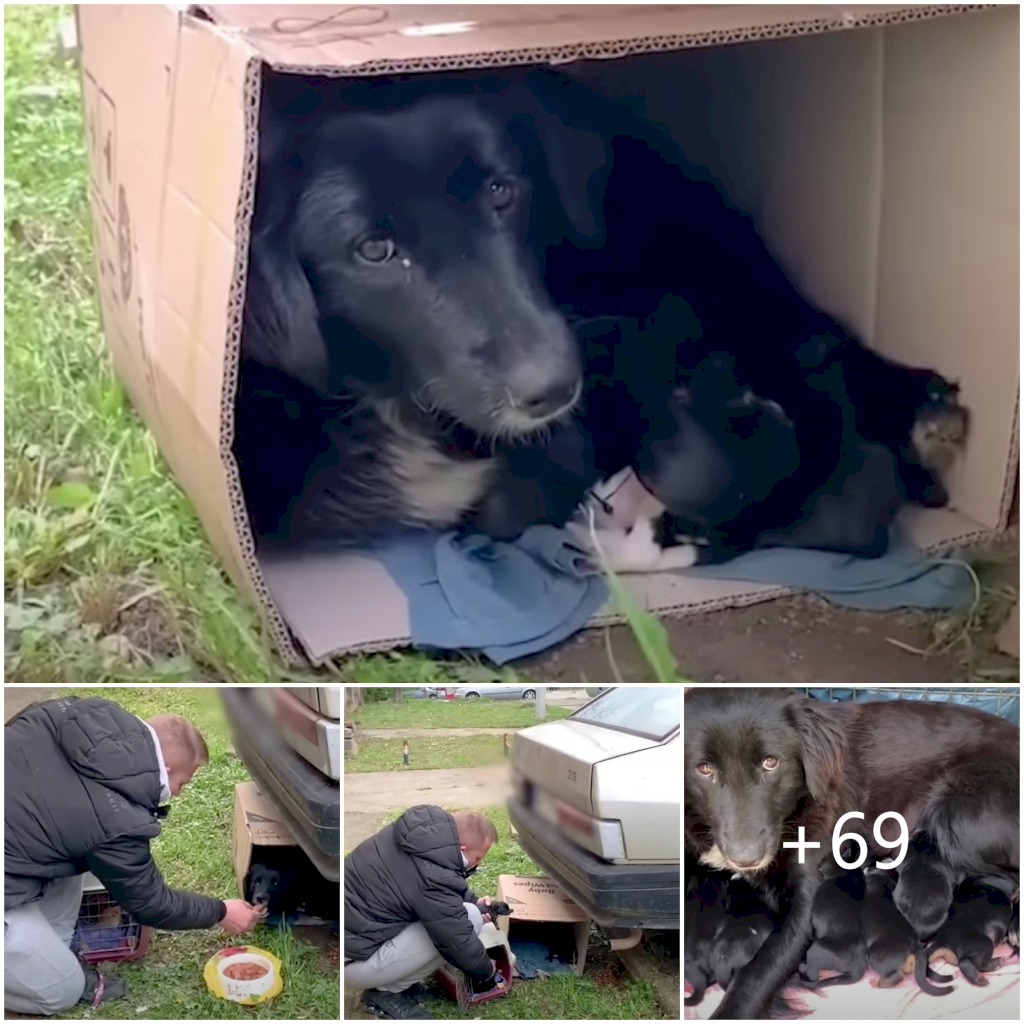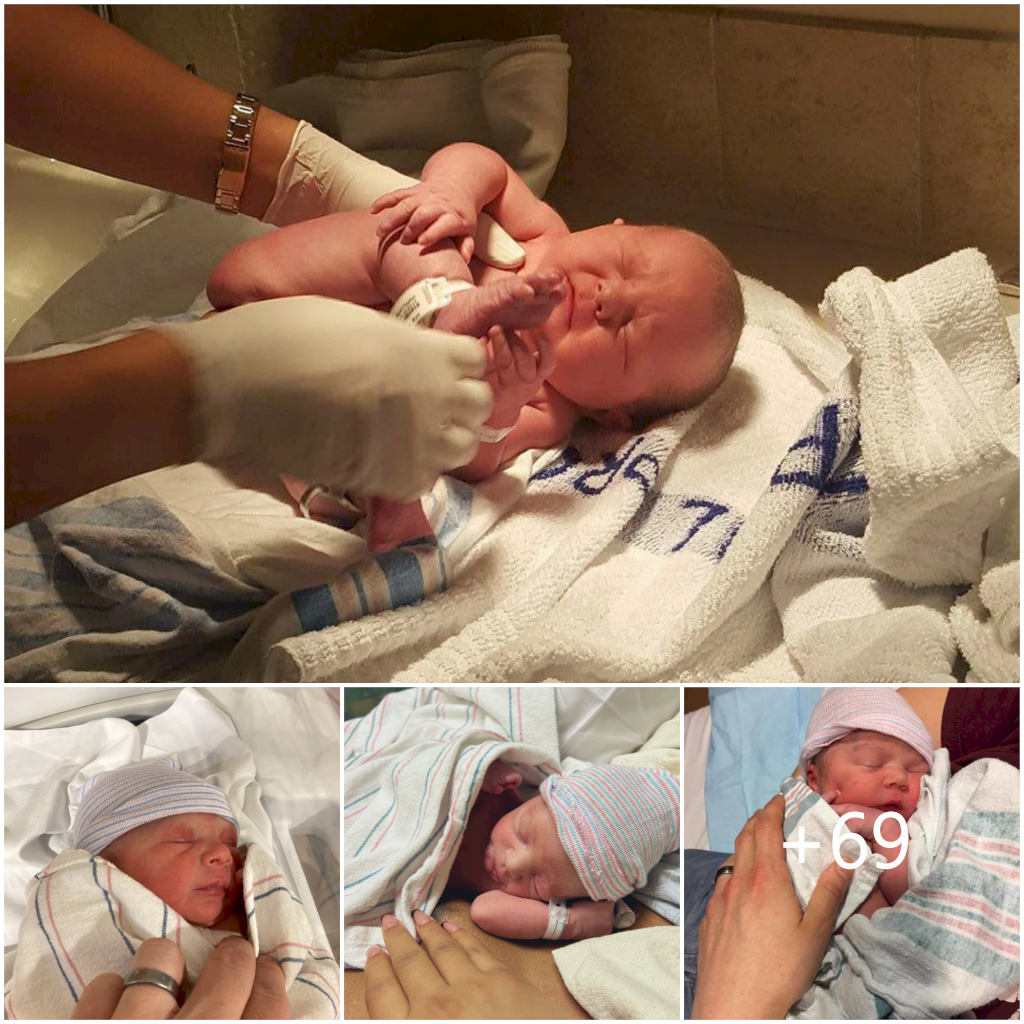 “It was just another Sunday during my pregnancy.” As a family, we were preparing to welcome a new child at any time.
“It was just another Sunday during my pregnancy.” As a family, we were preparing to welcome a new child at any time.
We cleaned all day and did all of the laundry in the house, which seemed like 638 pieces at the time because we had a family of five. I was tired and sick the entire day. My three previous pregnancies had all ended in weariness and nausea, so I assumed it was due to the impending delivery of our fourth child, Lincoln.

My middle child and I went to the mall to get clothes for his new sibling. I was so fatigued and nauseated by the time we got home that I couldn’t move. I’d call the doctor the next day.

The contractions started around midnight or one o’clock in the morning, so I assumed that was why I had felt so bad all day. I was delivering our first child, a daughter, twelve hours later. This was the moment I had been waiting for since we found out we were expecting a fourth child, but my joy was fleeting. Our baby was not crying, and everyone else in the room appeared panicked and hushed. I don’t remember exactly what was said during those times because they were blurry, but I do remember that they invited my companion to accompany them outdoors. Because our three sons were born in the Neonatal Intensive Care Unit, it would have been odd if everyone had stayed in my room and I had gotten to hold a newborn. When asked what her name was, I told her it was “Lincoln Riley Pool.” This had to be a brilliant plan to divert my attention away from the action in the corridor.
Riley returned to the room and, I suppose, did not say much to avoid frightening me. He said, “I’ve seen enough episodes of Chicago Fire to know that the situation is dire.” They had to revive her and implant a breathing tube down her throat. I persuaded myself there was no need to be concerned. We’ve already been here. Perhaps not exactly here, but we’ve had two premature kids and one child with a unique genetic issue, and everything worked out quite great, so this circumstance is identical. The neonatologist entered our room immediately after the infant had left, which had never happened before. The neonatologist NEVER came to find me; I had to track them down a few days into our NICU stay. “We’re not entirely sure what’s going on,” he said, “but the baby is extremely ill.” She is a skeptic. We are putting forth every effort. I, like Riley, have seen enough Grey’s Anatomy episodes to know that the line “we are doing everything we can” should never be heard.
They let me ride in a wheelchair to the NICU when I was still pretty unresponsive, which had never happened with my other NICU babies, so I knew the situation was dire. I remember being stunned the first time I saw Abraham Lincoln. I had continually told myself that she would recover, and it was up to the nurses and doctors to prepare me for the worst. I had no idea she’d look so drab and dreary. The neonatologist and nurses had no idea what was wrong or why she was in such bad shape, but they made me sign consent form after consent form in order to keep her alive. She was immediately given hypothermia to preserve ‘whatever brain tissue was left.’

I wondered what they meant when they said there was any residual cerebral tissue. Why do we save brain tissue for newborns? They said that it was impossible to say how long she had been without oxygen, but it had been long enough for her to incur brain damage. Because she had almost no blood in her body, they checked my blood for fetal cells. They informed me the next day that my blood contained a substantial number of fetal cells and that we had experienced a maternal fetal transfusion. It is a type of placental abruption in which the blood of the infant enters the mother’s body. This explains why I was so sick on Sunday. We had different blood types, and when her blood mixed with mine, I fell really ill. Everything started to make sense.
They started a full-body blood exchange transfusion, which meant that the existing blood in her body was evacuated and replaced with fresh blood. Because her blood was leaving her body, blood and platelet transfusions were administered as soon as that was completed. Her kidneys were deteriorating, and she needed life-saving treatment. The neonatologist told me repeatedly that her condition was life-threatening and that he had never seen a baby in this condition recover. She was heavily sedated and had convulsions. We would know the extent of her brain injuries on day 14, and if her condition permitted, she would have an MRI. She was stable enough to have an MRI on the fourteenth day. I was able to hold her because she had been taken off the ventilator, and I did so all day while waiting for the MRI findings.

A doctor arrived at roughly 8:00 p.m. She sat down solemnly and said, “The MRI reveals that your daughter has periventricular leukomalacia.” The outlook is grim. I wish I had more exciting news to share. The neurologist will be with you shortly to clarify this.’ WHAT?! Is the outlook bleak? Would you like to come in sometime? This was not acceptable. After a few tears, I did what everyone else does and looked it up. What an awful thought! When I’d had enough, I embraced Lincoln and promised, ‘I pledge we’ll do this together, and I’ll make sure you overcome the odds.’

I contacted the neurologist as soon as possible the next day, and he eventually consented to speak with me. He stated that PVL, which is caused by a lack of blood flow and oxygen to her brain at birth, has no treatment or cure. He anticipated that she would be blind, unable to walk or speak, unable to grasp items, and unable to live a regular life. Another neonatologist in the room added, “We need you to realize that her life will not be normal in any way.” She will be entirely reliant on you. We should probably talk about a permanent feeding tube.

Riley and I left that conversation feeling discouraged and devastated, and when we left the hospital 14 days later, we still felt this way, but I never lost hope that she would overcome the odds stacked against her. She had overcome the odds simply by surviving and leaving the hospital without a feeding tube. She was alert and upbeat. With the exception of missing motor milestones, she looked to be a regular infant.
Lincoln is now two years old and has had 464 treatment sessions. She is brave, compassionate, caring, and powerful.
Her motor milestones are still being missed, but her charm compensates for her lack of motor abilities.

She goes to Little Light House, the most magical place on Earth, and all of her classmates are unlike you and me. Some, like her, have cerebral impairment and epilepsy, while others have Down syndrome and other disorders.

She’s only recently learned to stand with one hand, and she’s scooting around like nobody’s business in a gait trainer. She is everything the doctors said she would not be.

She is able to feed herself, converse, and recite the alphabet. I mourn the daughter I had hoped for, but Lincoln makes my life so much better than it would have been without him. When you read our story, don’t feel sorry for us or how different our lives are; instead, use us as inspiration for whatever you’re going through. Remember us if you ever get a bad diagnosis that makes your days feel shorter or harsher, and don’t let a diagnosis define or limit you.”

Lauren George of Tulsa, Oklahoma, contributed this story to Love What Matters. Keep an eye on her whereabouts. Submit your story here. Sign up for our free email subscription to receive our top content.
Please SHARE this story on Facebook or Twitter if you know someone who would benefit from it.

There are a total of 2,767 shares. Tweet Email Chicago Fire, Grey’s Anatomy, the neonatologist, pregnancy, and pregnancy difficulties are just a few of the topics covered. She had less than 25 words in her vocabulary when you first met her. You suggested giving her a chance. You protected her while others questioned her abilities.’”I could hear the impact at that point. A body weighing more than 200 pounds slammed into the nightstand next to our bed. A 31-year-old former athlete in good health does not lose their athletic skills by accident. The woman was taken aback by her husband’s heart state.



